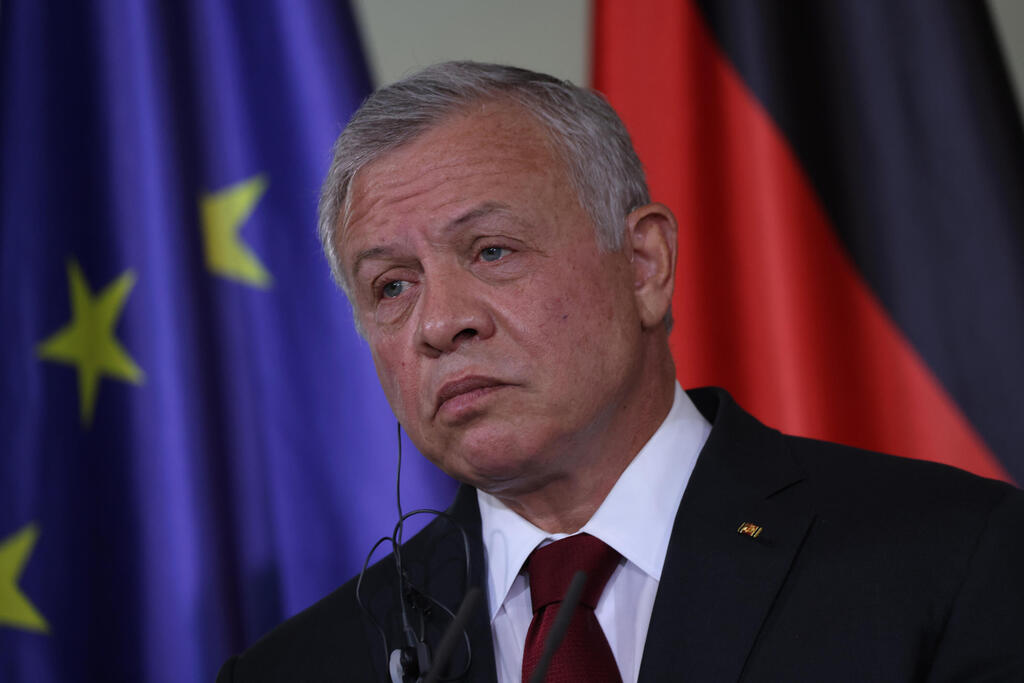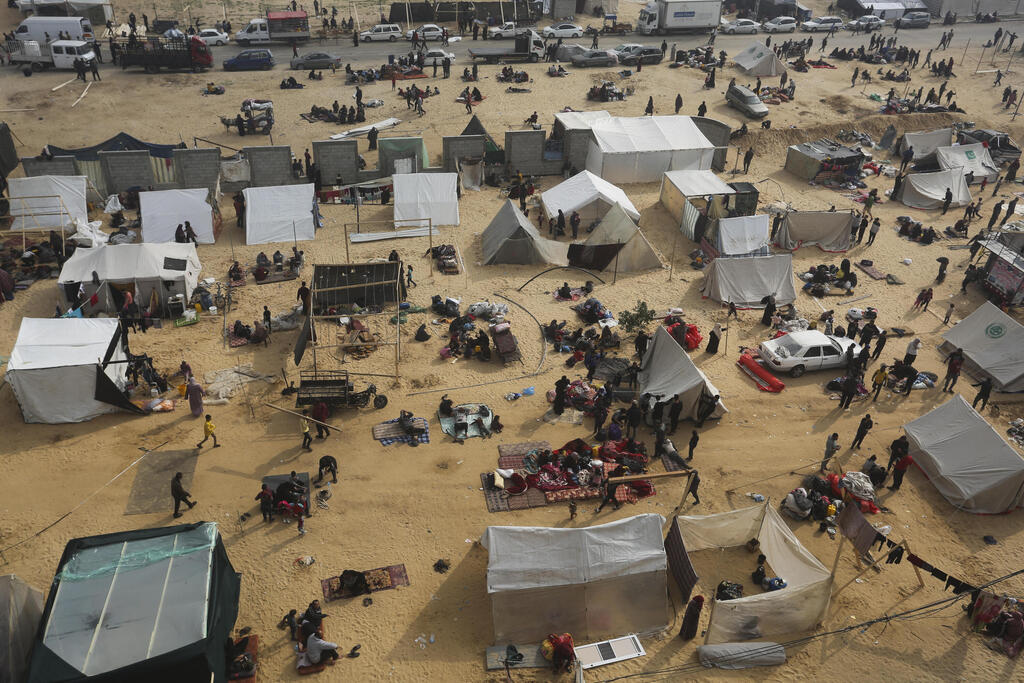Egypt expresses concern about the gathering of Gaza Palestinians at its border in light of recent reports that the United States and Israel are considering relocating refugees from into Egyptian territory, Qatari newspaper Al-Araby Al-Jadeed reported on Wednesday.
Read more:
The Egyptian network Al Qahera News reported on Wednesday that Cairo rejects any attempt to relocate any displaced Palestinians into its territory in violation of international law and was concerned about the continuation of Israel's operations in southern Gaza and the continued harm to civilians.
In recent weeks, Egyptian officials claimed that Israel's goal is to bring Palestinians from Gaza into the Sinai despite Egyptian assertions that they would not allow the move. Egyptian President Abdel-Fattah al-Sisi already said in October that "the elimination of the Palestinian issue without a just solution is something that cannot be allowed to happen, not at the expense of Egypt."
3 View gallery


Egypt President Abdel Fattah El-Sisi rejects any proposal to relocate Palestinians in Egypt
(Photo: Reuters/ Saudi Press Agency/Handout)
Egypt also claims that allowing Palestinians into Sinai would pose a security threat to Israel as well. In that case, Israel will have to deal with another front in addition to the multitude of existing threats.
The Lebanese newspaper Al-Akhbar, which is affiliated with the Iran-backed Hezbollah group, in a report published last month, said Egypt threatened to withdraw from the Israel-Egypt peace agreement signed in 1979 should they be forced to accept the Palestinians into their territory, and that the consequences for Israel would mean that the Sinai would become a refugee camp and therefore a threat.
Egypt also hinted to European officials that the pressure to bring Palestinians into its territory would be accompanied by waves of immigration to the continent and that the Egyptian security forces, who prevented illegal immigration for seven years, would first have to deal with guarding the borders. According to Al-Araby Al-Jadeed, Egypt now worries over Washington's lukewarm stance on the issue and has not provided firm guarantees regarding Gaza and the West Bank.
Israel is trying to pressure Egypt to facilitate the passage of the displaced people to Arab countries over time to avoid opposition.
The paper said that Israel is trying to pressure Egypt to facilitate the passage of the displaced people to Arab countries over time, to avoid pushback. The newspaper's sources claimed that Western and American officials were seeking to offer economic incentives to the Egyptians to agree.
3 View gallery


King Adbullah of Jordan also rejects Palestinians in Jordan
(Photo: Sean Gallup/Getty Images)
Jordan also shares concerns and objections to the forced displacement of Palestinians from the West Bank to the Hashemite Kingdom. Earlier this week, King Abdullah of Jordan repeated calls on the world to condemn any attempt to forcefully expel Palestinians. The King and the Jordanian Foreign Minister, Ayman Safadi reiterated that they would not allow uprooting Palestinians from their land and that this was a red line for their country. Last month, Safadi said that any attempt to bring about displacement to Jordan constitutes a "declaration of war."



